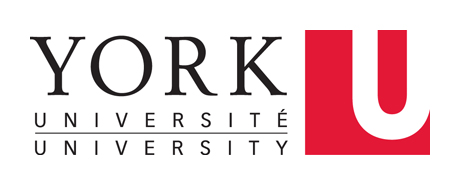V. Select Papers on Key Issues and Topics Discussed at the Conference
Globally Networking Learning (GNL) on Refugees and Forced Migration Through Innovative Collaborative Pedagogy in Mexico, Ecuador, and Canada
James C. Simeon; Hugo Washington Cahueñas Muñoz; Itzel Barrera De Diego; and Vania Ramírez Camacho

Globally Networking Learning (GNL) on
Refugees and Forced Migration Through Innovative Collaborative Pedagogy in Mexico, Ecuador, and Canada
Amid a pandemic, can we experience abroad online? York University and Tec de Monterrey have a reason to believe so. Keep reading to know why.
![]()
The Context
This Globally Networking Learning (GNL) experience was brought together in August 2020 per the initiative of the York International’s GNL Initiative at York University and involved York University (Canada), Universidad San Francisco de Quito (Ecuador) and Tecnológico de Monterrey (Mexico). The courses of the three institutions were very different but did share the main axis of talking about diverse international people having to adapt to an unknown international context.
This GNL course came together several months after the worldwide COVID-19 pandemic “lockdown” of higher educational institutions across the globe. Students enjoyed the opportunity to work with students from other countries and cultures on the subject matter cited above, that is international by its very nature.
The Logistics
Faculty partners had to grapple with three different course schedules, structures, and time zones. One main digital tool that facilitated faculty members to create a collaborative environment was the web platform. The GNL web platform best suited our needs by providing easy access for both faculty and students without having to install any specific software.
The Experience
To facilitate the learning process, the GNL must be oriented to maximizing student learning. It must engage each of the students and sustain their interest and curiosity throughout the course or instructional session.
Accordingly, the GNL partners sought to incorporate both synchronous and asynchronous modes of online instruction. Students were assigned to work in international teams and were introduced to each other with a request to read and to watch relevant, but reasonably short, readings and videos on the central concepts and concerns regarding those who are seeking international protection from those persons in their countries of origin who are persecuting them.
After formulating their international work team’s response to one of several assigned questions, the student work teams (comprised of students from Mexico, Ecuador, and Canada) must post their responses on the GNL course website Padlet. After doing so, the student international work teams were then assigned to comment on two other work teams’ contributions on the Padlet.
These exercises were preceded by a guest speaker’s lecture/conference that allowed students to hear a presentation on a relevant topic from a noted expert in the field. Thus far, we have had one guest speaker from Mexico and another from Ecuador.
What Students Thought
Around 72% of the students responded to a final survey. The survey was sent out to 145 students who had participated in a one/two-week online learning collaboration. One of the challenges was to integrate the GNL with the regular courses. Fortunately, 89% of the answers show that GNL was well integrated into their regular course. Moreover, 76% of the students would like to participate in a GNL again; and 85% would recommend other students to participate in a GNL experience.
What We Learnt
The internationalization of students is a trend that has grown exponentially in recent years, but internationalization, so far, has concentrated in the elite of some countries. COVID-19 transformation from an epidemic to a pandemic within a year, the exclusive costs of going abroad resulting in entire social classes exclusion, alongside structural circumstances that prevent all students’ participation (namely, the English language proficiency) could all be alleviated by using online tools.
However, even though we can experience study abroad online, it is no substitute for the physical experience. We need to make sure that physical mobility is available for all. Our GNL was a starting point for students to see the benefits of global peer connections. It is up to our institutions to follow through on their students’ aspirations.
Finally, considering some survey comments, in future GNL courses, we should be open to encouraging more work team interaction, including more discussion within their work teams and on the students’ fields of study during the initial Icebreaker exercise.
Final Advice
- Make sure to understand the curriculum needs of your partner. An embedded GNL is key to success, to student engagement and to educators’ appreciation of the GNL as an added value to their course.
- Prepare both synchronous and asynchronous activities. Make sure students have access to a common platform to review previous support materials so you make sure they all come with a baseline knowledge, regardless of their unavoidable diverse background.
- Be certain that students find themselves comfortable in the GNL working language. Refraining from participation can be pinned to language limitations rather than disinterest from the subjects.
- Be mindful that online conference time runs differently. Keep the conferences short, the Q&A section brief and controlled and the synchronous meet and greet session the one to have the most time dedicated. This is where the students find the true added value of a GNL.
Authors: Barrera de Diego, I., Cahuenas, H., Simeon, J., & Ramirez-Camacho, V. (2021). Globally networked learning (GNL) on refugees and forced migration through innovative collaborative pedagogy in Mexico, Ecuador, and Canada. York University, Toronto.
Contact: James Simeon, York University. Jcsimeon@yorku.ca
DOI: 10.25071/10315/38628_01


